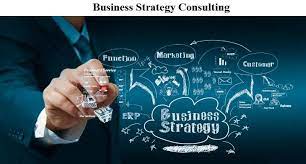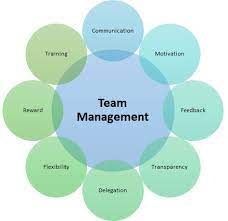The Significance of Being Specific: Enhancing Communication Clarity
The Power of Being Specific in Communication
Communication is a fundamental aspect of human interaction, and being specific in our communication can make a significant difference in how our message is received and understood. When we are specific, we provide clear and detailed information that leaves little room for ambiguity or misinterpretation.
Being specific helps to avoid misunderstandings and ensures that our message is conveyed accurately. It allows us to articulate our thoughts, ideas, and intentions with precision, making it easier for others to grasp the meaning behind our words.
Specificity also adds credibility to our communication. When we provide specific details, facts, and examples to support our points, we demonstrate a thorough understanding of the subject matter and show that we have done our homework. This can enhance the trust and confidence others have in what we are saying.
Moreover, being specific can lead to more effective problem-solving and decision-making. By clearly outlining the specifics of a situation or issue, we can identify key factors, assess options more accurately, and come up with targeted solutions that address the root cause of the problem.
In professional settings, being specific is essential for conveying expectations, setting goals, giving feedback, and delegating tasks. Clear and specific communication helps to streamline processes, improve efficiency, and foster a culture of accountability within an organisation.
When it comes to personal relationships, being specific can strengthen connections and avoid unnecessary conflicts. Clearly expressing feelings, needs, and boundaries allows for open dialogue and mutual understanding between individuals.
In conclusion, the power of being specific in communication cannot be overstated. Whether in professional or personal contexts, specificity enhances clarity, credibility, problem-solving capabilities, efficiency, accountability, and relationship dynamics. By honing our ability to be specific in our communication, we can truly make an impact and achieve better outcomes in all aspects of life.
Five Benefits of Specificity: Clarity, Credibility, Problem-Solving, Efficiency, and Stronger Relationships
- Enhances clarity and understanding in communication.
- Adds credibility by providing detailed information and examples.
- Aids in problem-solving and decision-making processes.
- Improves efficiency by streamlining processes and tasks.
- Fosters stronger relationships through clear expression of thoughts and feelings.
Drawbacks of Excessive Specificity: 7 Reasons to Avoid Over-Focus on Details
- May limit creativity and imagination by focusing too narrowly on specifics
- Can be time-consuming to provide detailed specifics for every aspect of a project or task
- Overemphasis on specifics may lead to missing the bigger picture or underlying issues
- Being overly specific can come across as pedantic or nitpicky, affecting relationships
- If specifics are misunderstood or misinterpreted, it can lead to confusion or conflict
- Rigid adherence to specifics may hinder adaptability and flexibility in changing circumstances
- Constantly seeking specificity can create unnecessary pressure and stress in communication
Enhances clarity and understanding in communication.
Being specific in communication significantly enhances clarity and understanding. By providing detailed and precise information, we leave little room for confusion or misinterpretation. Specificity helps to paint a clear picture of our message, making it easier for others to grasp the meaning behind our words. When we are specific, we eliminate ambiguity and ensure that our message is communicated accurately, leading to improved comprehension and effective communication exchanges.
Adds credibility by providing detailed information and examples.
By providing detailed information and concrete examples, specificity enhances credibility in communication. When we offer specific details and examples to support our points, we demonstrate a thorough understanding of the subject matter and showcase our expertise on the topic. This level of specificity not only reinforces the validity of our statements but also helps to build trust and confidence in our message, making it more compelling and convincing to our audience.
Aids in problem-solving and decision-making processes.
Being specific in communication plays a crucial role in aiding problem-solving and decision-making processes. By clearly defining the details and specifics of a situation or issue, individuals can identify key factors, analyse options more effectively, and develop targeted solutions that address the root cause of the problem. Specificity helps to streamline problem-solving by providing a clear roadmap for assessing challenges and making informed decisions based on accurate information. This precision in communication enhances the efficiency and effectiveness of problem-solving efforts, leading to more successful outcomes.
Improves efficiency by streamlining processes and tasks.
Being specific in communication offers the significant advantage of improving efficiency by streamlining processes and tasks. When details are clearly outlined and expectations are precise, individuals involved can focus on the essential aspects of their work without confusion or unnecessary delays. Specific instructions and information help to eliminate ambiguity, reduce errors, and ensure that tasks are completed in a timely manner. This streamlined approach not only saves time but also enhances productivity and effectiveness within teams and organisations.
Fosters stronger relationships through clear expression of thoughts and feelings.
Being specific in communication fosters stronger relationships through the clear expression of thoughts and feelings. When we articulate our thoughts and emotions with precision, we create a foundation of mutual understanding and trust in our relationships. By being specific about our needs, boundaries, and expectations, we enable open and honest dialogue that deepens connections and minimizes misunderstandings. Clear communication allows individuals to feel heard, valued, and respected, ultimately strengthening the bonds between them.
May limit creativity and imagination by focusing too narrowly on specifics
Focusing too narrowly on specifics may limit creativity and imagination by confining our thinking within the boundaries of precise details. When we become overly fixated on specific elements, we risk overlooking broader perspectives, alternative interpretations, and innovative ideas that could emerge from a more open and imaginative approach. Creativity thrives on exploration, experimentation, and thinking outside the box, qualities that may be stifled when our attention is solely directed towards narrow specifics. Embracing a balance between specificity and creative freedom can lead to more dynamic and original outcomes in problem-solving, communication, and overall innovation.
Can be time-consuming to provide detailed specifics for every aspect of a project or task
One downside of being specific in communication is that it can be time-consuming to provide detailed specifics for every aspect of a project or task. While clarity and precision are important, investing excessive time and effort in detailing every single aspect may lead to delays in progress and hinder overall productivity. Balancing the need for specificity with efficiency is crucial to ensure that communication remains effective without becoming overly burdensome or slowing down the pace of work.
Overemphasis on specifics may lead to missing the bigger picture or underlying issues
While specificity in communication is crucial, overemphasising details and specifics may inadvertently result in missing the bigger picture or overlooking underlying issues. Focusing excessively on minute details can sometimes cloud our judgement and distract us from seeing the broader context or deeper root causes of a situation. It is important to strike a balance between being specific and maintaining a holistic perspective to ensure that we address all aspects of a problem effectively and make well-informed decisions that consider the larger implications.
Being overly specific can come across as pedantic or nitpicky, affecting relationships
Being overly specific in communication can sometimes have a negative impact on relationships, as it may be perceived as pedantic or nitpicky. When individuals focus too much on minute details or insist on precision in every aspect of communication, it can create tension and frustration. This excessive emphasis on specificity may overshadow the main message or intention, leading to misunderstandings and hindering effective dialogue. In social interactions, being overly specific can make others feel scrutinized or criticised, potentially damaging rapport and trust between individuals. Therefore, striking a balance between being specific and maintaining a level of flexibility is crucial in fostering positive and harmonious relationships.
If specifics are misunderstood or misinterpreted, it can lead to confusion or conflict
When specifics are misunderstood or misinterpreted, it can potentially result in confusion or conflict. In communication, if the detailed information provided is not clearly grasped by the recipient, it may lead to misunderstandings and miscommunications. This lack of clarity can create confusion about expectations, requirements, or intentions, ultimately causing friction or disagreement between parties. Therefore, while being specific is crucial for effective communication, it is equally important to ensure that the specifics are conveyed in a manner that is easily understood and interpreted correctly to avoid potential issues.
Rigid adherence to specifics may hinder adaptability and flexibility in changing circumstances
Rigid adherence to specifics may hinder adaptability and flexibility in changing circumstances. When individuals or organisations are overly focused on specific details or requirements, they may struggle to pivot or adjust their approach when faced with unexpected challenges or opportunities. This rigidity can limit innovation, creativity, and the ability to respond effectively to dynamic situations. Embracing a more flexible and adaptable mindset, while still valuing specificity where necessary, allows for greater agility and resilience in navigating the complexities of an ever-changing world.
Constantly seeking specificity can create unnecessary pressure and stress in communication
Constantly seeking specificity in communication can inadvertently create unnecessary pressure and stress. When individuals feel compelled to provide detailed information at all times, it can lead to overthinking and second-guessing their words, causing delays in conveying messages effectively. This pressure to be overly specific may also result in a fear of making mistakes or omitting crucial details, leading to heightened anxiety about communication interactions. Striking a balance between being specific when necessary and allowing for flexibility and adaptability in communication can help alleviate the undue stress that comes with the constant pursuit of specificity.







